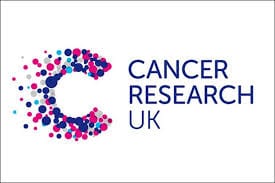One in two people will develop cancer at some point in their lives, according to Cancer Research UK published in the British Journal of Cancer.
“Cancer is primarily a disease of old age, with more than 60 per cent of all cases diagnosed in people aged over 65. If people live long enough then most will get cancer at some point.” – Professor Peter Sasieni
The new figure highlights the urgent need to bolster public health and NHS cancer services so they can cope with a growing and ageing population and the looming demands for better diagnostics, treatments, and earlier diagnosis. Prevention must also play an important role in the concerted effort required to reduce the impact of the disease in coming decades.
Thanks to research, the UK’s cancer survival has doubled over the last 40 years and around half of patients now survive the disease for more than 10 years. But, as more people benefit from improved healthcare and longer life expectancy, the number of cancer cases is expected to rise. This new research estimating lifetime risk finds that, from now on*, 1 in 2 people will be diagnosed with the disease.
This new estimate replaces the previous figure, calculated using a different method, which predicted that more than 1 in 3 people would develop cancer at some point in their lives.
Age is the biggest risk factor for most cancers, and the increase in lifetime risk is primarily because more people are surviving into old age, when cancer is more common. Harpal Kumar, Cancer Research UK’s chief executive, said: “We’re living longer and that means we’re more likely to develop a range of age-related health issues. We need to plan ahead to make sure the NHS is fit to cope. If the NHS doesn’t act and invest now, we will face a crisis in the future – with outcomes from cancer going backwards.
Further information at Cancer Research UK

